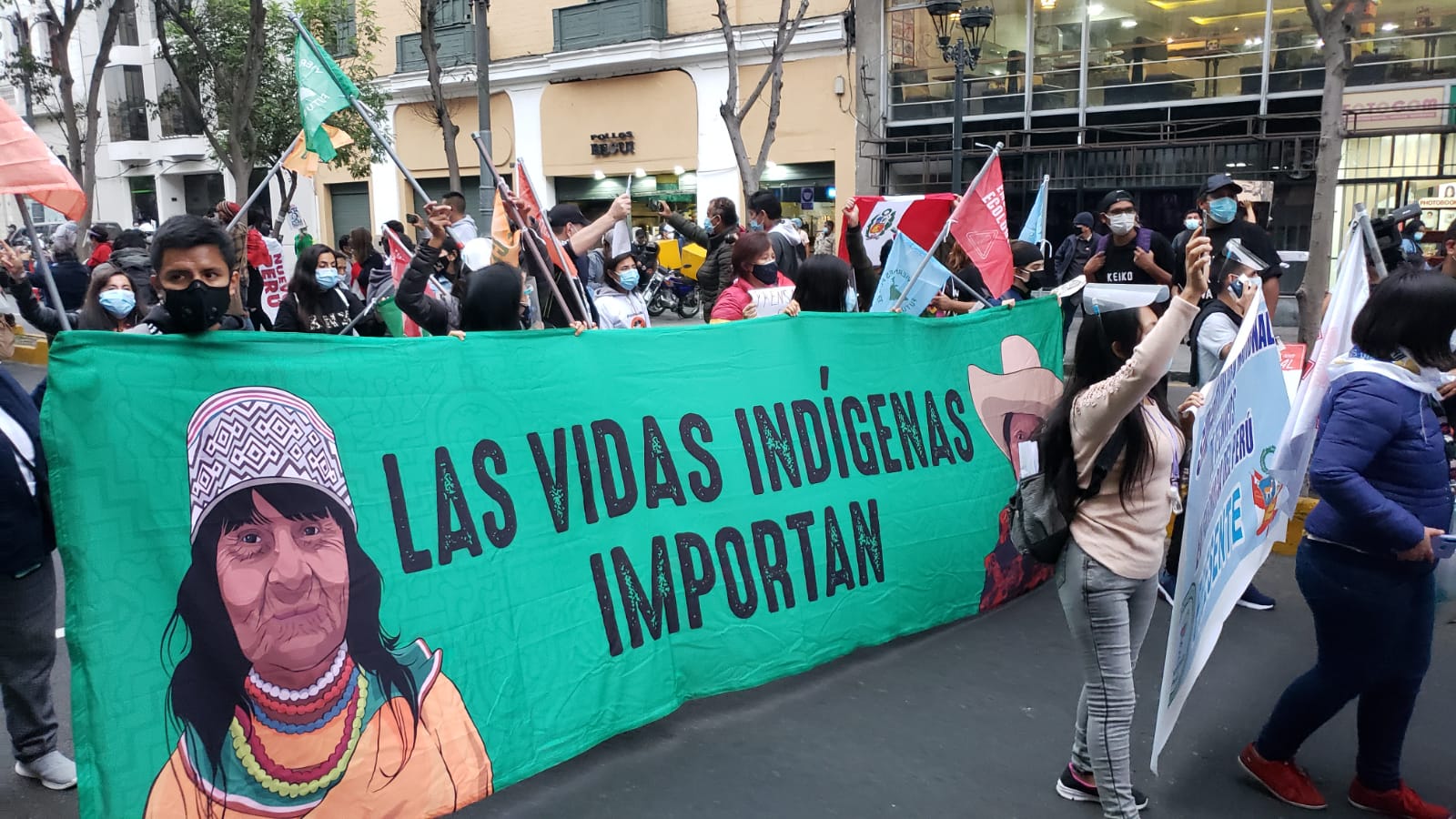
Under the slogans “Fujimori nunca más” and “Keiko No Va,” many thousands of Peruvians filled the streets of Lima and cities across the country May 22 to repudiate the presidential candidacy of Keiko Fujimori, contender of the far-right Fuerza Popular party and daughter of imprisoned ex-dictator Alberto Fujimori. The lead contingent in the rally that filled downtown Lima’s Plaza San Martín was composed of survivors of the reign of terror during the 1992-2000 Fujimori dictatorship.
Gisela Ortiz, whose brother was among nine students abducted and murdered by a death squad at La Cantuta University in 1992, told Página12: “The families of the victims of fujimorismo have been struggling throughout many years for memory and justice, and we are concerned that the daughter of the principal author of the deaths of our family members is seeking to take the government to rewrite the history that has condemned fujimorismo. Keiko is impunity.”
Large mobilizations were also held in Arequipa, Cuzco, Huancayo, Huánuco, Ayacucho, Tacna, Cajamarca and other cities. (El Búho, La República, RPP)
Two weeks ahead of a run-off vote, despite far greater campaign and media resources, Fujimori is trailing her rival Pedro Castillo of Perú Libre, a left-populist former teacher and union leader from a rural area of northern Cajamarca region—far from the center of power in Lima. Peru’s traditional political class has been taken unawares by a groundswell in support of Castillo from the vast and impoverished provincial areas of the country.
Sendero massacre abets propaganda
Fujimori’s supporters have sought to baselessly tar Castillo with links to the brutal Sendero Luminoso guerilla movement. On the day after the anti-Fujimori mobilization, presumed guerillas of a remnant Sendero faction killed at least 18 people, including six women and two children, in attacks on campesino settlements in Vizcatan district, Satipo province, Junín region. The district lies within the Apurímac-Ene-Mantaro River Valley (VRAEM), a pocket of jungle in the country’s east which is the last significant Sendero stronghold. Leaflets were left in the name of the “Militarized Communist Party of Peru,” urging abstention in the upcoming vote and calling Fujimori voters “traitors” who would be marked for retribution.
The Armed Forces Joint Command issued a statement calling the attack an “act of genocide,” and pledging fast action against the presumed Sendero leader in the VRAEM, Victor Quispe Palomino. (BBC Mundo, EFE, Andina)
Castillo tweeted a statement expressing “solidarity” with the families of the victims of what he termed a “cowardly attack.” He added: “I energetically condemn this terrorist attack and insist that the full weight of the law is applied to bring justice. We will not tolerate any act of violence.”
Photo via Twitter




